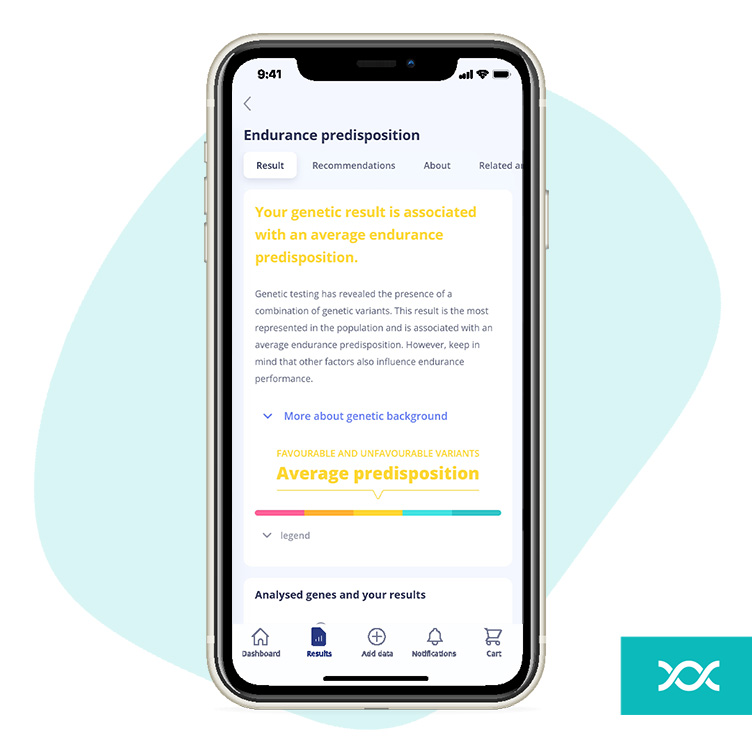Often used interchangeably, these two sporty terms have some minor differences. Keep reading to learn what they are, when one is important more than the other, and how to improve both!
Stamina
In short, stamina is the strength and energy that allow you to sustain physical or mental effort for long periods of time. This means you can endure discomfort or stress while performing an activity, and it also means you’re less tired and use less energy for your daily activities.
Feeling winded after chasing your toddler around the house?
Not a fan of using the stairs?
Taking out the trash leaves you gasping for air? Well, if it’s not because of the foul smell coming out from the trash can, it’s probably because you lack stamina.
We can think of stamina as the opposite of fatigue, or the ability to feel energetic for a prolonged period.
Let’s take running as an example – or better yet, sprinting. Stamina is the total time you’re able to sprint or run at the fastest pace possible.
Why is stamina important?
Stamina is important for sports like baseball, sprints, football, and soccer – all the sports where you need sudden, large bursts of energy. However, as we pointed out, stamina is also essential in your day-to-day life. If you don’t have stamina, you’ll struggle with daily tasks!

How can you improve stamina?
1. Balance
As always, the most important thing is balance. If you feel that going over the top with your training routine is not good for your body, take it easy! After training with high intensity, make sure to rest and recover, or choose a lighter activity. You can only progress with giving your body enough time to recover, recharge, and build more stamina!
2. Intervals
If you want to increase stamina, especially for your sports endeavours, it’s recommended you try out interval training.
Intervals increase the energy in our body, which helps increase stamina! You can do interval training with cardio or with weight-lifting. The general rule of thumb is to do an exercise for 20 seconds. Then, do another set of exercises for 20 seconds, and after these two sets, rest for 20 seconds. Repetitions count: do this for 30–40 minutes 3-4 times a week, and your stamina will increase drastically.
However, don’t repeat the same kind of exercise every day. Mix it up a bit; change your routine and activities to really see an increase in your stamina.
3. Meditation or yoga
Nowadays, meditation and yoga are getting more traction than before. And for a good reason! They help us relax, refocus, and live in the moment. Better yet, when done regularly, they can help reduce stress and improve overall stamina!
4. Ashwagandha
Saying this out loud will surely improve your mental stamina! Just kidding.
Ashwagandha is a natural herb. It grows in Asia and Africa and is widely available as a supplement. It is said to have several health benefits, and some evidence suggests that it can:
- increase overall energy,
- boost cognitive function,
- reduce stress,
- and improve general health.
Besides that, it can also improve your stamina … and endurance!
This brings us back to where we started – endurance. So, tell us already. What is it?
Endurance
Endurance is related to your body’s physical capability to sustain an exercise for an extended period of time. As stamina, we need endurance not only for our sports activities but for daily tasks as well – folding the laundry, unloading the dishwasher, holding the baby, and so on.
We define endurance as the maximum time the body or a specific muscle group can exert force or perform physical activity. If we compare it to stamina, this force doesn’t have to be at its maximum – the goal for endurance is to maximise time.
If stamina is essential for sprints, then endurance is the key for marathons, where you have to push your body to run for a very long time and distance.


Endurance consists of two components: cardiorespiratory endurance and muscular endurance.
Muscular endurance refers to your muscles’ ability to consistently and repetitively exert force over some time. Cardiorespiratory endurance measures how well your heart, lungs, and muscles work together to keep your body active over an extended period.
Why is endurance important?
Muscle endurance is important for daily tasks such as walking, carrying your bags, playing with your kids and so on. So not only is endurance a valuable asset to have for workout purposes, just as stamina, it’s important for your everyday life too.
Gardening? Colouring the front porch? Endurance will make you feel less tired. And it will also limit injuries sustained from physical exertion and the overuse of active muscles throughout the day!
How can you improve endurance?
1. Increase your volume and intensity
Gradually increase the volume or intensity of your workout to continue improving your fitness.
Want to improve your 10-kilometre run time? You’ll need to make your workouts harder by increasing either:
- the distance you run
- the speed you run
- or the amount of time you run.
2. Exercise more
150 minutes of endurance training, or any other exercise per week, is recommended to strengthen your heart, lungs, and leave you healthier overall. However, if you exercise even more – for more than 300 minutes per week, you’ll gain additional benefits, such as improved endurance and stamina.
3. Find your target heart rate
During exercise, your heart rate can make a huge difference in how effective your workout will be, as exercising at the correct intensity can help you get the most out of your physical activity and increase your endurance and stamina. Learn everything about your heart rate and its effect on your workouts here.
4. Listen to your genes
Yup, your genes can influence your endurance as well! A simple, saliva-based DNA test can show your endurance predisposition, as genetic factors play an essential role in sports performance.
If you want to discover yours, head to our page and learn more about the Sport and recreation chapter of the MyLifestyle DNA test.


Stamina vs endurance
While their definitions are technically a bit different, both stamina and endurance goals are usually the same. They are both needed for your body to exert a force or perform physical activity longer. So, the things you’re doing to improve your stamina will also benefit your endurance. And vice versa!
There is usually no need to differentiate between the two, aside from running and some other activities, such as push-ups.
Trying to do one push-up per second? Stamina will dictate how long you can perform them at the same rate.
However, if you want to determine how many push-ups you can perform, regardless of rate and time, muscular endurance will be the determining factor.
To sum up: stamina and endurance are both time parameters for physical activity. There is one difference between them: stamina is the time you can perform an activity at maximum capacity, while endurance is the maximum time you can perform physical activity.
So, make sure to stay hydrated, train in intervals, get at least 150 minutes of aerobic activity per week, and you will surely see an improvement in your stamina and endurance in time.
Don’t forget that progress takes time, so don’t push or overexert yourself. Increase your training time and weights gradually, and most importantly: always listen to your body and find an exercise you enjoy! This will surely bring the results you want to see.
Sources
- https://www.healthline.com/health/exercise-fitness/endurance-vs-stamina
- https://www.inspireusafoundation.org/difference-between-stamina-and-endurance/
- https://www.medicalnewstoday.com/articles/324904
- https://www.healthline.com/health/fitness-exercise/how-to-increase-stamina
- https://www.webmd.com/fitness-exercise/features/5-ways-to-boost-your-stamina
- https://greatist.com/health/how-to-increase-stamina
- https://www.ncbi.nlm.nih.gov/pmc/articles/PMC4687242/
- https://www.sciencedirect.com/topics/medicine-and-dentistry/endurance
- https://www.livestrong.com/article/331420-why-is-muscle-endurance-important/

















